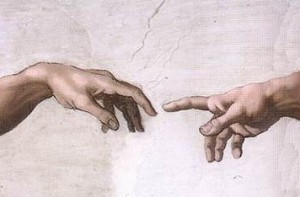
Poet and journalist Steve Turner satirically remarks in his poem “Creed:”
“We believe that all religions are basically the same; at least the ones we read were. They all believe in love and goodness. They only differ on matters of creation, sin, heaven, hell, God, and salvation.”
Indeed, to claim that “all religions are basically one” or that “all religions lead to the same god” is logically inconsistent. If you’re not convinced, this article should make my reasoning clear.
The Christian faith, as revealed in the Bible itself, has amazing, beautiful, transforming power in it. It is is living and active, sharper than any two-edged sword. It pierces deep into our hearts, enabling it to judge the thoughts and intentions of our hearts (Hebrews 4:12).
I would like to define some of what separates Christianity from other worldviews, and the power that it has.
1) Christianity gives ultimate meaning and purpose to life.
In this respect Christianity is separated from atheism. The Bible gives us a view of a cosmic, beautiful, incredibly important story unfolding. It is a war between good and evil, between love and lawlessness. It gives us a reason to live and it shapes our lives.
Of course an atheist can live with a personal sense of existentially constructed meaning. But that meaning lacks the authority to empower his actions in his moments of greatest need. It is essentially utilitarian. It is a personally constructed illusion that he needs to survive, and thus he doesn’t actually believe in it. It is a product of random chance that happened by sheer luck to serve him for a time, and he is well aware of it. Death will rob him of it entirely.
2) Christianity motivates us to do the right thing.
Once again, this separates us from atheism.
Can an atheist be moral? Of course! But behind closed doors, or when things get tough, he truly has no incentive to seek the common good over his own preservation and fulfillment. His morality, like his meaning and purpose, is utilitarian and thus extremely flimsy. He can live by rules, but He has no reason not to abandon them if it seems favorable to him to do so.
3) Christianity does justice to the importance of the heart.
This separates us from Islam. Christianity is not a legalistic religion. It is not chiefly about rule following. A muslim is justified when his good deeds outweigh his bad ones.
In a legalistic religion, rituals become compulsive. The heart is not addressed because the actions are considered sufficient.
Christianity, on the other hand, emphasizes the heart first, and actions follow naturally. Consider Jesus’ brilliant “Sermon on the Mount” that begins in Matthew 5 for examples.
4) Christianity is ambitious.
This separates us from Buddhism. A central goal of Buddhism is to become free from all desire. Desire is understood to cause pain, and eliminating desire eliminates pain and brings us to enlightenment. There is no distinction between desires for right or wrong ends. All desire is to be eliminated.
Christianity exalts the desire for that which is right, while rejecting that which is wrong. It is ambitious enough to expect something more wonderful to be accomplished than an escape from all ambition.
5) Christianity speaks seriously of our sins, but does not deprive us of our dignity.
The Bible goes so far as to say that we are all wicked. Not one of us is good. It holds no delusions about the nature of man (Romans 3:10).
It also indicates that we were made for great things, made just a little lower than the angels (Psalm 8:3-9), and that with the power and renewal that comes only from God we can be righteous (John 3).
6) Christianity teaches us how to forgive others and ourselves.
In this way I believe that Christianity outshines any other worldview. The Bible teaches that God is Love. Love is willing to suffer for the good of others. Thus Jesus Christ came to the cross to suffer for our sakes, so that He might forgive us.
Any time you forgive someone, you are absorbing the evil that they have done rather than compounding it. The incredible teaching of Christianity, which no other religion dares to suggest, is that God Himself, our Creator, is willing to suffer in order to absorb our evil. In this way the relationship between us and Him is held together.
It follows that we have no right to withhold forgiveness from others. We are not justified in withholding mercy when we are so clearly in need of it (Matthew 18:21-35).
In conclusion: No worldview meets mankind where he is like Christianity. Its meaning, purpose, and morals are universal and objective, giving them the necessary weight to serve us in our most difficult hours. It emphasizes the transformation of our hearts, not simply of our actions. It gives us an ambitious outlook on the outcome of this amazing battle that we see around us. It gently but firmly insists that we accept the wickedness of our own hearts, and then proceeds to flood them with the grace and hope necessary to become something more. And most importantly, it teaches us the truth about love, the only force strong enough to hold us together.

